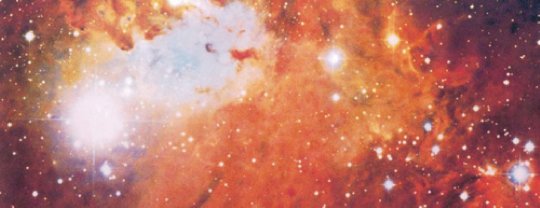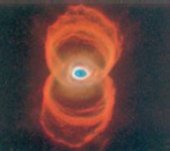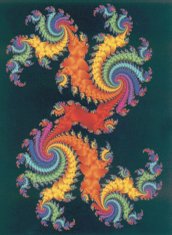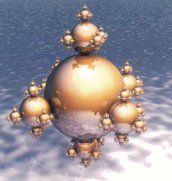| |

So where will your Journey of Discovering India begin ? The Beginning
Gautam Mukerjee


| CREATION HYMN |
(Nasadiya).. |
 |

| There was neither non-existence nor existence then;
there was neither the realm of space nor the sky which is beyond. What stirred ? Where ? In whose protection ? Was there water, bottomlessly deep ? There was neither death
nor immortality then. There was no distinguishing sign Darkness was hidden by
darkness in the beginning; with no distinguishing sign, |
||
| Desire came upon that one in the beginning; that was the first
seed of the mind. Poets seeking in their heart with wisdom found the bond of the existence in non-existence. Their
cord was extended across. Was there below ? Was there above ? Who really knows ? Who
will here proclaim it ? Whence was it produced ? Whence this Creation has
arisen - perhaps it formed itself, |
||
| Read it at least thrice before moving on and I'm sure you'll begin to taste | ||
| the beautiful flavor of the intellectual duel inherent in the hymn. | ||
| It would be best to wrestle this one with your Mind but let me sow some seeds | ||
| for your debate to take shape. | ||
| Why specify that there was neither non-existence nor existence then ? The | ||
| linear world of western philosophy would have left it at saying no existence. | ||
| It is the complex, a step further world of Indian philosophy that says | ||
| no non-existence either. Because to accept the negative is to allude to a | ||
| positive indirectly. This is logic at its subtle best, isn't it ? | ||
| So what is the prime mover of consciousness ? It is Desire. Desire creates | ||
| the Will to know, to understand, to live consciously. (Read the detailed | ||
| background note I've provided from Dr. S. Radhakrishnan's Oxford Lectures | ||
| on Hindu philosophy. The Creation Hymn portion is great for those of you | ||
| who want to delve deeper). |
Two roads to infinity.

| The third interesting question posed by this lovely Hymn is on the status of | ||
| the Creator. The classic chicken and egg syndrome. Who came first. The | ||
| Creator or the Universe ? | ||
| The palpably vibrant query - who created the Creator ? How did he come | ||
| to exist ? And the truest answer - WHO KNOWS ? Its really perfect in every | ||
| logical sense. The acceptance of a Creator. The mystery of his origin. | ||
| Leaving the question hanging without trying to provide a glib answer. | ||
| The background philosophy of admitting that it is impossible to define | ||
| the infinite (the source of Creation) by the finite, i.e. our very, very limited | ||
| understanding of that infinite. Because once you define the infinite, it is | ||
| no longer the infinite and that is just not possible. So pose the question | ||
| but do not venture forth to answer it. | ||
| Very, very clever. | ||
| So how does it feel sharing 3500 year old thoughts of Scribes conjecturing on | ||
| Creation ? |

| Absolutely amazing I'd say. And if you want a more serious input; look up the | ||
| background reading on the Introduction. That should provide a real intellectual | ||
| high ! | ||
| cvbcvbcvbcvbcvbcvbcvbcvbhfsdgfshdsgf | ||
| We have a wide spectrum of subjects covering the many wonderful faces | ||
| of India. Each one will reveal beautiful secrets that will build her personality | ||
| brick by brick for you. | ||
| cvbcvbcvbcvbcvbcvbcvb | ||
| Bon Voyage and see you next month. Same time. Same place. |
| Love | ||
| Gautam | ||
| f |

The Universe as an unexpected gift. Watercolor by Greg Mort.